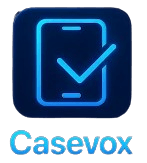
Are you getting calls about your William Sonoma credit card debt?
When a consumer doesn’t make payments for debts owed, the creditor has the right to sell the debt to a collection agency and in many cases, these debts are sold for less than they’re worth. Various businesses, including third-party debt buyers and collection agencies, may be involved in the collection or purchase of the debt.
Debt collectors are allowed to call you over your Williams Sonoma payment if your creditor has hired or sold your Williams-Sonoma credit card debt to them. However, the debt collector contacting you over your Comenity Williams Sonoma card must not in any way harass or threaten you. Debt collectors are also required to respond to consumer requests in accordance with the law.
The FDCPA has laid down rules that the debt collector asking you to pay your Williams Sonoma credit card must adhere to in their collection process. The FDCPA clearly defines what constitutes harassment and outlines the rights of consumers.
The Williams Sonoma card debt collector must stick to everything the FDCPA says about debt collection. Although many debt collectors violate people’s rights, it does not mean that you have to keep tolerating this violation. You can put an end to Williams-Sonoma card debt collection harassment if you’re getting uncomfortable with their collection methods.
While you seek ways to pay up your Comenity bank William Sonoma credit card debt, you should not be a victim of stress and harassment. Contact us today at 877-700-5790 if you’re experiencing Williams Sonoma card debt collection harassment and would like to know your options, get advice, or take legal action.
About the William Sonoma credit card
Founded in 1956, William Sonoma is a consumer retail company that is headquartered in San Francisco, with store locations across the country. They sell kitchenware and home furnishings. With the Williams and Sonoma credit card, shoppers can make purchases in-store or place an order online, and earn the best rewards. Each transaction is recorded and managed through your account.
William Sonoma started based on the inspiration of its founder Chuck Williams, who decided that America’s home chefs, needed to have access to the high-quality French cookware he had discovered on his trip to Paris.
If your account has not gone into collection, you can access your Williams Sonoma credit card login page and get further details by going to the William Sonoma pay bill page. Your data is used to manage your account and process transactions securely.
Contact Information
Phone: 877-812-6235
Fax 1.702.363.2541
Address: 3250 Van Ness Ave. San Francisco, CA 94109
How do debt collection agencies work?
Collection agencies can choose to specialize in the type of debts they collect, based on how long the debt has lasted. Some agencies have limited the types of debts they pursue to specific categories, focusing on particular transactions or accounts to enhance their effectiveness.
An agency with a good reputation may narrow the scope of its collection to cover only debts that are within the statute of limitations. This implies that the Williams Sonoma payment they’re pursuing is not too old and it can still be pursued legally.
When the William Sonoma credit card debt has been successfully recovered, the creditor pays the collector or collection agency in the range of 25% to 50% of the amount paid. That is if they didn’t completely sell the debt to the collector, in which case, the money now completely belongs to the debt collector, as they have already purchased the debt.
Delinquent debts collected by collection agencies include automobile loans, credit card debt, medical loans, business loans, personal loans, student loans, and also unpaid utility and cell phone bills. Agencies may focus on specific types of transactions or accounts, and business loans are, however, not covered by the FDCPA.
There are risks involved in debt collection, including potential issues such as fraud or errors in debt records, which can complicate the process for both agencies and consumers.
When debt collectors find a debt difficult to collect, they usually end up negotiating a settlement with the debtor for less than the amount owed. To complete a settlement agreement, both parties must agree to the terms and follow the required steps, such as signing documents and confirming payment arrangements. So in case you were wondering, the answer is yes; you can negotiate a more favorable payment amount or plan out your Williams Sonoma credit card payment structure with the debt collector. However, If this doesn’t work out, they may transfer such cases to court, and file a lawsuit against you.
Before a collection agency purchases delinquent debts, they make certain to check old accounts that were not able to be recovered from other collectors. Agencies also measure and improve their collection strategies to enhance recovery rates and overall performance.
Debt buyers most often purchase debts through a bidding process. The older the debt, the more likely it will cost less and can also be discarded. And because of the risk involved in purchasing old debt from creditors and paying the original creditor for it in advance, the amount they retrieve from debtors becomes completely theirs.
The price for each debt differs in regard to the type of debt which has a huge influence on the price. For example, mortgage debt is far more significant than utility debt. Debt collectors receive payment after recovering payment for a delinquent debt. The more they are able to collect, the more they earn. This is probably why they remain relentless in their pursuit.
Debt collection agencies act as intermediaries between creditors and debtors by collecting delinquent debts and sending them back to the original creditor. As part of the collection process, agencies may share or send information to other businesses or third parties to facilitate recovery or comply with legal requirements. A debt is considered delinquent after payment has not been made for at least 60 days after it is past due.

Important Keynotes about Debt Collection
- ➢ Some collectors are paid when they recover a past-due debt, while others fully purchase the debt from the original creditor and begin to make attempts to collect it.
- ➢ Delinquent debts that collectors go after range from personal to even business debts.
- ➢ There are laws put in place by both Federal and State governments to protect consumers faced with debts problems.
- ➢ Debt collectors can either work independently or with collection agencies.
- ➢ Debt collectors must comply with all relevant regulations when collecting debts.
- ➢ The term ‘debt’ as used in this context is defined by law.
- ➢ Consumers should be presented with clear information about their rights and the collection process.
If you have further questions or would like more information, you can reach out to our team of qualified attorneys by calling 877-700-5790.
Harassment from a William Sonoma credit card phone number?
Are you receiving any harassing phone calls from any of these numbers?
(800) 541-1262
1.855.860.1081
1.800.231.380
+800 1500555
If the answer is yes, then you are receiving calls from a known William Sonoma credit card phone number. You may be a victim of harassment from William Sonoma and the debt collectors they hire. The list above is not all the numbers that Williams Sonoma uses. The calls can be from different phone numbers and still be William Sonoma calling you. Cardholders might also receive text messages from these numbers in relation to collecting a William Sonoma credit card debt. If you have blocked these numbers but continue to receive calls from new numbers, it may be a sign of ongoing harassment. Contact our office right away at 877-700-5790 if you will like to put an end to the harassment.
Resolving Your William Sonoma Credit Card Debt
Resolving your William Sonoma credit card debt can feel overwhelming, especially when you’re facing persistent phone calls or requests from debt collectors. Whether your purchases were made at Pottery Barn, Pottery Barn Kids, West Elm, or any other Williams Sonoma, Inc. brands, it’s important to know that you have rights and options to protect your financial security and peace of mind.
First, familiarize yourself with the laws that regulate debt collection, such as the Fair Debt Collection Practices Act (FDCPA). This act is designed to protect customers from harassment and unfair practices, setting clear rules for how and when debt collectors can contact you. If you receive calls, letters, or other forms of contact regarding your account, always keep a detailed record of each interaction. Note the phone number, date, time, and content of the conversation. These details can be crucial if you need to submit a complaint or take legal action to address any violations of your rights.
If you’re unable to pay your Williams Sonoma credit card debt in full, you may have the right to negotiate a settlement. Debt collectors may be willing to accept a lower amount or offer a payment plan, but it’s essential to review the terms carefully. Make sure you understand how any agreement will affect your credit, and never accept terms that put your financial security at further risk. If you have questions about the process or need help understanding your options, consider reaching out to a credit counselor or financial advisor who can offer guidance tailored to your situation.
In cases where debt collectors cross the line into harassment—such as making excessive phone calls, using threatening language, or ignoring your requests to stop contact—you have the right to take action. You can report such behavior to the Federal Trade Commission (FTC), your state’s Attorney General’s office, or the (CFPB). You also have the right to request written validation of the debt, dispute the amount owed, or demand that the collector stop contacting you altogether.
Williams Sonoma, Inc. and its brands strive to offer quality products and services, but if you find yourself struggling with debt related to your purchases, it’s important to address the issue promptly. Ignoring the problem can lead to further complications, including damage to your credit score or even legal action. By understanding your rights, keeping thorough records, and seeking professional help when needed, you can take control of your financial situation and protect yourself from unfair practices.
Remember, you are not alone. If you need assistance or have questions about your rights, don’t hesitate to contact a consumer rights law firm for support. Taking proactive steps now can help you resolve your Williams Sonoma credit card debt and restore your financial security.

Consumer Rights Law Firm PLLC
If you’re dealing with aggressive or unlawful debt collection tactics related to your Williams Sonoma Credit Card, you’re not alone. Federal consumer protection laws strictly prohibit harassment, intimidation, misleading statements, or excessive contact from debt collectors. Whether you’re facing constant phone calls, false threats, or improper third-party disclosures, you have rights that collectors must respect.
At Consumer Rights Law Firm PLLC, we help consumers stop abusive or illegal collection behavior connected to credit card debt including Williams Sonoma Credit Card accounts. Our attorneys understand federal debt collection rules and use that knowledge to protect your rights and put an end to harassment. Since 2010, we’ve helped thousands of clients regain financial peace and hold collectors accountable and we proudly maintain an A+ rating with the Better Business Bureau.
If you want to learn more about your rights or need immediate help with Williams Sonoma Credit Card debt collection issues, call (877) 700-5790 or visit our website to get started.
Success Stories
- Absolutely incredible law firm to work with. Matthew took care of everything, and was fully equipped even though he said it was a case he had never seen before. couldn’t reccomend them enough⭐⭐⭐⭐⭐
- Absolutely amazing experience, Matt really helped me to get one of my bills removed due to the harassment I received from said company of the bill. Phone calls stopped, didn’t cost me anything out of pocket! I would highly recommend using this service. Real deal y’all!⭐⭐⭐⭐⭐
- Being completely honest I was extremely hesitant and worried about this being a joke. I am extremely grateful that I took a chance with Matt and he took care of me, even answering my calls/texts at any time of the day. He was able to get the harassment to stop from the debt collector within a week (nonstop robo calls) and roughly a month after signing him as my attorney he called me stating me debt of over 4k was waived. No attorney fees, no debt and no more spam calls. Thank you so much, massive weight has been lifted off my shoulder. These guys are the real deal⭐⭐⭐⭐⭐
Frequently Asked Questions
1. What should I do if I’m getting constant calls about my Williams Sonoma Credit Card?
You have the right to request the collector to stop calling and to demand written verification of the debt.
2. Can Williams Sonoma Credit Card collectors call me at any time?
No. Collectors cannot call before 8 a.m. or after 9 p.m.
3. Can a debt collector threaten me over my Williams Sonoma Credit Card balance?
False threats of lawsuits, arrest, or wage garnishment are illegal.
4. Can I request written proof of the Williams Sonoma Credit Card debt?
Yes. You can request written validation within 30 days of the first collection notice.
5. Can a collector contact my family about my Williams Sonoma Credit Card debt?
No. They cannot discuss your debt with anyone except you (or your attorney).
6. Can I be sued for not paying my Williams Sonoma Credit Card?
Yes, but only if the debt is within the statute of limitations.
7. Are collectors allowed to call me multiple times a day?
No. Repeated calls meant to harass or pressure you are illegal.
8. What happens if a collector lies about my Williams Sonoma Credit Card debt?
You may report the violation and can seek legal remedies.
9. Can I dispute my Williams Sonoma Credit Card debt?
Yes. You have the right to dispute the debt in writing.
10. What if a debt collector violates my rights?
You may be entitled to compensation for unlawful collection practices.







